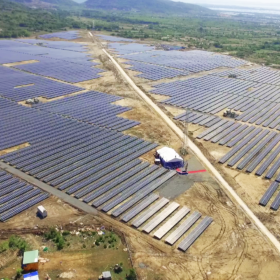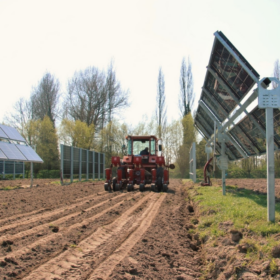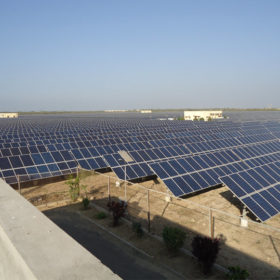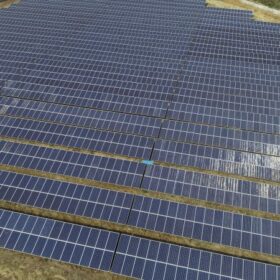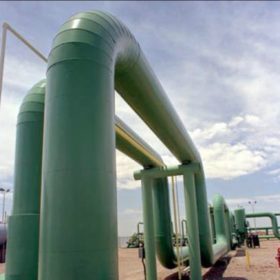Waaree Renewable secures 52.6 MWp solar EPC project
Waaree Renewable Technologies will construct the ground-mount solar project for the group company of a leading power generator in India.
Agrivoltaic facilities with single-axis trackers have lower LCOE than those with fixed structures
New research from Belgium shows agrivoltaic facilities with trackers perform significantly better than projects with fixed structures. The scientists found projects with tracking achieved an LCOE of €0.077 ($0.082)/kWh, while facilities with fixed structures were found to have an LCOE of €0.10/kWh.
Desert Technologies to develop renewable energy solutions for Essar’s green steel project in Saudi Arabia
Desert Technologies has signed a pact with Essar Group to develop renewable energy generation and storage solutions for Essar’s Flat Steel Complex in Saudi Arabia.
REC launches 470 W heterojunction solar panel with 22.6% efficiency
REC has developed a new series of heterojunction solar panels with efficiencies up to 22.6% and an operating temperature coefficient of -0.24% per degree Celsius.
Bangladesh Jute Mills Corp. signs PPAs for 90 MW of rooftop PV
Bangladesh Jute Mills Corp. (BJMC), which manages all government-owned jute factories and industries in the South Asian country, has agreed to buy power from six different project developers under a 20-year power purchase agreement (PPA).
Tata Power, SIDBI sign MoU on easy finance for MSME solar
Micro, small, and medium enterprises (MSMEs) can avail SIDBI loans at low interest rates to fund rooftop solar PV plants or associated services from Tata Power or its authorized channel partners across India.
SMA introduces 110kW string inverter in India
SMA has unveiled its Sunny Tripower CORE2 110 kW string inverter for commercial rooftop and ground-mounted solar systems in the the Indian market. The inverter offers twelve MPP trackers for maximum design flexibility.
Cleantech Solar commissions virtual PPA-driven solar plant in India
The solar plant is estimated to generate around 187 GWh of green power over its lifecycle, helping to offset over 171 kilotonnes of carbon emissions.
NTPC, Nayara Energy sign MoU on green hydrogen production
NTPC Green Energy Ltd (NGEL) will collaborate with Nayara Energy, an oil refining and marketing company, to produce green hydrogen for Nayara Energy’s captive usage.
Oriana Power secures 29 MW solar EPC contract in Karnataka
The commercial and industrial solar solutions provider will construct the solar plant for consumption by a steel major in Karnataka.
